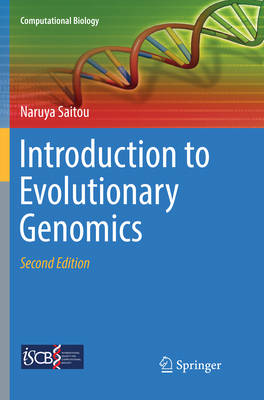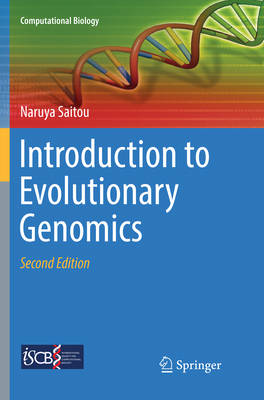
- Retrait gratuit dans votre magasin Club
- 7.000.000 titres dans notre catalogue
- Payer en toute sécurité
- Toujours un magasin près de chez vous
- Retrait gratuit dans votre magasin Club
- 7.000.0000 titres dans notre catalogue
- Payer en toute sécurité
- Toujours un magasin près de chez vous
Description
This authoritative textbook/reference presents a comprehensive introduction to the field of evolutionary genomics. The opening chapters describe the fundamental concepts in molecular biology and genome evolution for readers without any prior background in this area. This is followed by a detailed examination of genome evolution in various different groups of organisms. The text then concludes with a review of practical methods essential to researchers in the field.
This updated and revised new edition also features historical perspectives on contributions to evolutionary genomics from related fields such as molecular evolution, genetics, and numerical taxonomy.
Topics and features: introduces the basics of molecular biology, covering protein structure and diversity, as well as DNA replication, transcription, and translation; examines the phylogenetic relationships of DNA sequences, and the processes of mutation, neutral evolution, and natural selection; presents a briefevolutionary history of life, surveying the key features of the genomes of prokaryotes, eukaryotes, viruses and phages, vertebrates, and humans; reviews the various biological "omic" databases, and discusses the analysis of homologous nucleotide and amino acid sequences; provides an overview of the experimental sequencing of genomes and transcriptomes, and the construction of phylogenetic trees; describes methods for estimating of evolutionary distances, and performing studies of population genetics; supplies additional supporting material at an associated website.
Serving as an indispensable textbook for graduate and advanced undergraduate courses on evolutionary genomics, this accessible overview will also prove invaluable to researchers from both computer science and the biological sciences seeking a primer on the field.
Spécifications
Parties prenantes
- Auteur(s) :
- Editeur:
Contenu
- Nombre de pages :
- 504
- Langue:
- Anglais
- Collection :
- Tome:
- n° 17
Caractéristiques
- EAN:
- 9783030064785
- Date de parution :
- 22-12-18
- Format:
- Livre broché
- Format numérique:
- Trade paperback (VS)
- Dimensions :
- 155 mm x 235 mm
- Poids :
- 1082 g

Les avis
Nous publions uniquement les avis qui respectent les conditions requises. Consultez nos conditions pour les avis.






